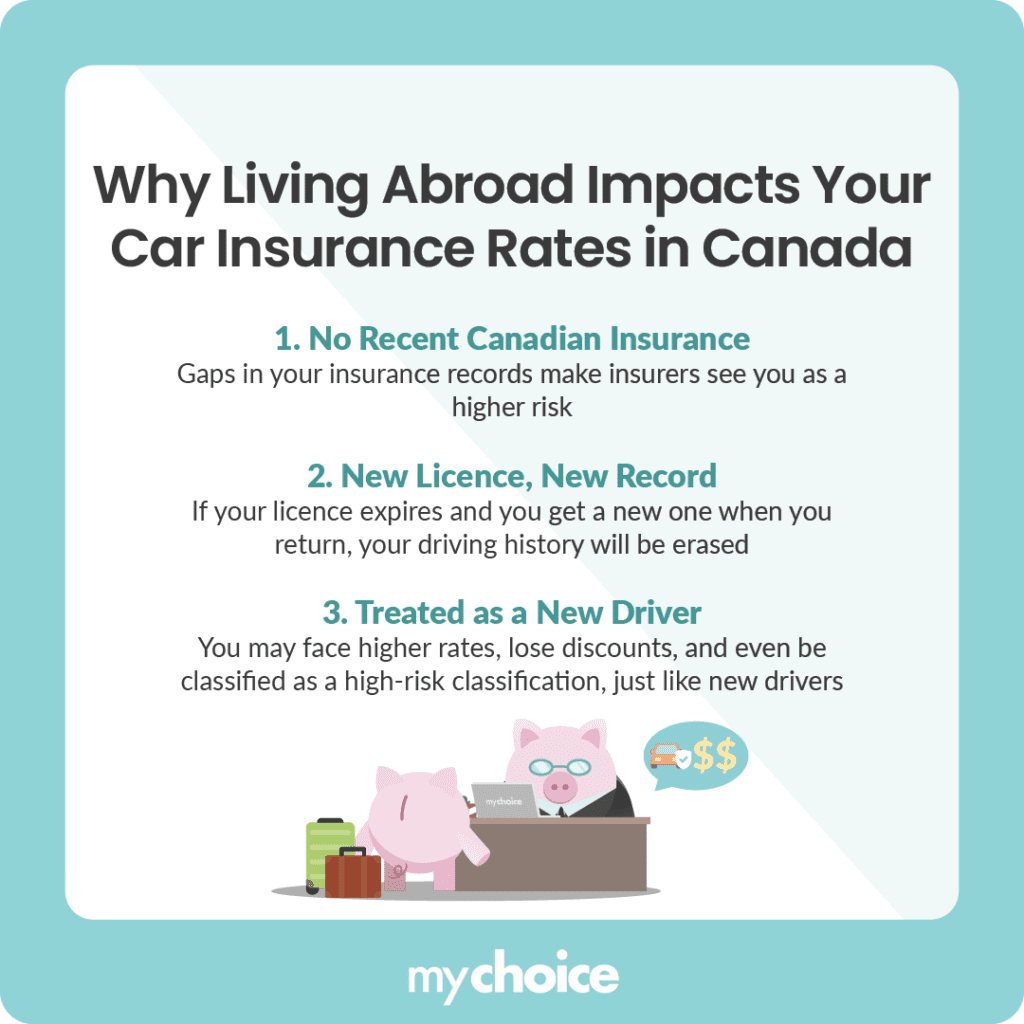If you’re a Canadian driver returning home after living abroad, you may not anticipate changes to your auto insurance. That’s right – even if you’ve been driving safely overseas, you might still be subject to sky-high insurance rates. Why?
Gaps in your Canadian auto insurance or licensing history can motivate insurers to consider you a new driver or reevaluate your risk. So, how can you keep your insurance rates reasonable as a returning driver? This guide will show you.
Why Returning Drivers Face Higher Insurance Costs
When Canadians return home after living abroad, they’re often surprised to see insurance charges as high as $3,000. Let’s review why this happens.

Differences in How Returning Drivers Are Treated Across Canada
How your car insurance rates are affected depends on where in Canada you return to. Each province has a different licensing authority, so your insurance may be regulated privately or publicly.
Ontario is among the more accommodating provinces, given that your licence has expired for under three years. Fortunately, you can often renew it without retesting. You can also preserve your driving record if you provide the appropriate documentation to the Ministry of Transport.
Conversely, the public insurer ICBC handles all insurance in British Columbia and can be strict. Depending on how long you’ve lived abroad, the ICBC may require retesting or re-categorizing you into a lower licensing class.
Here’s where things can get tricky: if you live in a province like Alberta, where the SAAQ manages injury claims publicly and vehicle coverage privately, whether you need to retake road tests may vary.
How to Keep Your Driving Record Alive While Abroad
If you plan to live abroad for some time, the best thing you can do to keep your driving record alive is to prepare. Here’s what you can do to avoid starting from scratch.
Key Advice From MyChoice
- Review your licence before you leave and consider renewing it for the maximum term to avoid being categorized as high-risk when you return.
- Document your driving experience abroad, including a translated driving abstract, any claims you made, and your international permit.
- Inform your insurance company that you’ll be moving abroad temporarily and provide concrete plans for your return.








